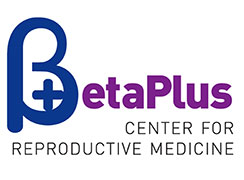Metformin, ovulation and PCOS
Ten years ago a study was published, suggesting metformin should not be used as a drug of choice for ovulation induction in women with PCOS. As a result, the drug has been avoided by gynecologists who advised patients it is a “poorer choice” drug compared to clomiphene. More recently, guidelines issued by the American Society for Reproductive Medicine also concluded that metformin should not be used as a first choice drug for ovulation induction in women with PCOS.
In the first published study, metformin was compared to clomiphene citrate for ovulation induction. Back at the time that was a reasonable comparison, as metformin still did not have its place in the treatment scheme of ovulation induction. However, it is mixing apples and oranges because the drugs are completely different. If a gynecologist needs to induce ovulation next month, clomiphene or letrozole are to be used, not metformin.
However, in the Internet era, every woman who has ever been diagnosed with PCO or PCOS will Google the diagnosis and find out that she might have a problem when she tries for pregnancy. Therefore, she will probably contact her physician instantly, and it will be very difficult to tell such a woman to come back in a year, which is the time needed to establish infertility, because she knows that she does not ovulate and is losing her time.
Luckily, most often women like the one described do not seek immediate treatment, but rather a good advice on how to succeed without medical help. Although PCOS women are known for infrequent ovulations, women who never ovulate are extremely rare, and if younger than 36 the patient should be given a chance to succeed without us interfering.
This is primarily how I use metformin in PCOS patients who do not make pregnancy their priority but would rather try on their own for six months or so. In such a way, patients are unburden by the load of expectationscoming from both themselves and their families, as they have done something to increase their chances. At the same time, doctors are unburden too, because they actually did something for the patient.
Metformin may be given to patients with insulin resistance; however it is not necessary to prove it before prescribing the drug. It does not cause low blood sugar levels, and therefore may be safely prescribed to normal weight patients. If a patient is overweight, she should be advised aerobic activity, preferably something that will fit into her daily routine (walking, or riding the bike to work) instead of going to the gym, if this is something she does not prefer.
Women with PCOS produce more insulin to keep the blood sugar levels normal compared to healthy women. Over time, this will cause weight gain, less frequent ovulations, troubles conceiving, frequent miscarriages, diabetes in pregnancy, but at the time we see those patients they are still young and none of these complications have evolved, yet. They may benefit from metformin immensely.
Diagnosis of PCOS should be carefully established. In Europe, we often see women whose only PCOS trait is PCO on ultrasound. These women ovulate, and are in no need for medical help or metformin, unless they have other reason for IVF. In IVF cycle, they will probably hyperstimulate, as they have high antral follicle count. In such patients, metformin should be prescribed to avoid the risk of OHSS – not to increase chances of pregnancy.
Personally, I am not inclined to prescribe metformin to overweight patients, because I think it helps normal weight patients more, although there is no firm evidence for such an opinion. Therefore, I will not deny metformin to such patients. I will not prolong treatment with metformin if within a reasonable time frame a patient does not ovulate, or if she is older than 36. If a patient is resistant to clomiphene, metformin should be added in parallel to increasing the dosage of clomiphene, as the combination leads to more ovulations.
In conclusion, I think metformin is very useful in treating infertility. Sometimes the patient will start ovulating, and sometimes pregnancy will be achieved as well. Therefore, the need for medical interventions in such patients will be decreased. If this need still exists, due to the male factor or clomiphene resistance, metformin may help in inducing ovulation or lower the chance of OHSS. It does not lead to malformations and may be safely used in pregnancy. It may even lower the miscarriage rate in PCOS patients, which is the reason we should stop its use only after pregnancy is confirmed.
Romana Dmitrović, M.D., Ph.D
November 24th, 2017




